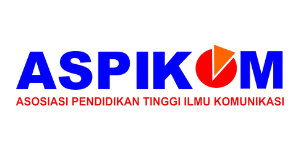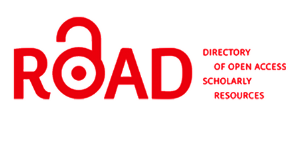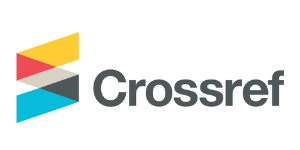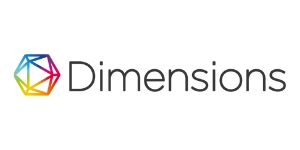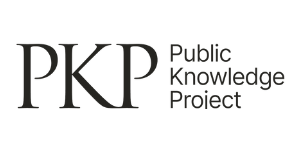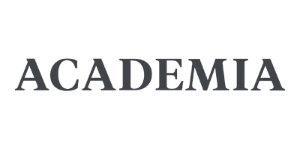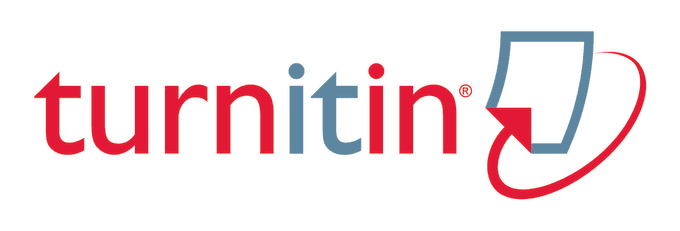Publication Ethics
Journal of Communication and Public Relations is a double-blind peer-reviewed journal published by LSPR Publishing. This statement clarifies ethical behaviour of all parties involved in the act of publishing an article in this journal, including the author, the chief editor, the Editorial Board, the peer-reviewer, and the publisher. This statement is based on COPE's Best Practice Guidelines for Journal Editors.
Ethical Guideline for Journal Publication
The publication of an article in a peer-reviewed Journal of Communication and Public Relations is an essential building block in the development of a coherent and respected network of knowledge. It is a direct reflection of the quality of the work of the authors and the institutions that support them. Peer-reviewed articles support and embody the scientific method. It is therefore important to agree upon standards of expected ethical behaviour for all parties involved in the act of publishing: the author, the journal editor, the peer reviewer, the publisher and the society.
Duties of Publisher
LSPR Publishing as publisher of the Journal of Communication and Public Relations takes its duties of guardianship over all stages of publishing extremely seriously and we recognize our ethical and other responsibilities. We are committed to ensuring that advertising, reprint, or other commercial revenue has no impact or influence on editorial decisions. In addition, the Lembaga Penelitian, Publikasi dan Pengabdian Masyarakat (LP3M) Institut Komunikasi dan Bisnis LSPR and Editorial Board will assist in communications with other journals and/or publishers where this is useful and necessary.
- Publication decisions
The editor of the Journal of Communication and Public Relations is responsible for deciding which of the articles submitted to the journal should be published. The validation of the work in question and its importance to researchers and readers must always drive such decisions. The editors may be guided by the policies of the journal's editorial board and constrained by such legal requirements as shall then be in force regarding libel, copyright infringement and plagiarism. The editors may confer with other editors or reviewers in making this decision.
- Fair play
An editor at any time evaluates manuscripts for their intellectual content without regard to race, gender, sexual orientation, religious belief, ethnic origin, citizenship, or political philosophy of the authors.
- Confidentiality
The editor and any editorial staff must not disclose any information about a submitted manuscript to anyone other than the corresponding author, reviewers, potential reviewers, other editorial advisers, and the publisher, as appropriate.
- Disclosure and conflicts of interest
Unpublished materials disclosed in a submitted manuscript must not be used in an editor's own research without the express written consent of the author.
Duties of Reviewers
- Contribution to Editorial Decisions
Peer review assists the editor in making editorial decisions and through the editorial communications with the author may also assist the author in improving the paper.
- Promptness
Any selected referee who feels unqualified to review the research reported in a manuscript or knows that its prompt review will be impossible should notify the editor and excuse himself from the review process.
- Confidentiality
Any manuscripts received for review must be treated as confidential documents. They must not be shown to or discussed with others except as authorized by the editor.
- Standards of Objectivity
Reviews should be conducted objectively. Personal criticism of the author is inappropriate. Referees should express their views clearly with supporting arguments.
- Acknowledgement of Sources
Reviewers should identify relevant published work that has not been cited by the authors. Any statement that an observation, derivation, or argument had been previously reported should be accompanied by the relevant citation. A reviewer should also call to the editor's attention any substantial similarity or overlap between the manuscript under consideration and any other published paper of which they have personal knowledge.
- Disclosure and Conflict of Interest
Privileged information or ideas obtained through peer review must be kept confidential and not used for personal advantage. Reviewers should not consider manuscripts in which they have conflicts of interest resulting from competitive, collaborative, or other relationships or connections with any of the authors, companies, or institutions connected to the papers.
Duties of Authors
- Reporting standards
Authors of reports of original research should present an accurate account of the work performed as well as an objective discussion of its significance. Underlying data should be represented accurately in the paper. A paper should contain sufficient detail and references to permit others to replicate the work. Fraudulent or knowingly inaccurate statements constitute unethical behaviour and are unacceptable.
- Data Access and Retention
Authors are asked to provide the raw data in connection with a paper for editorial review, and should be prepared to provide public access to such data (consistent with the ALPSP-STM Statement on Data and Databases), if practicable, and should in any event be prepared to retain such data for a reasonable time after publication.
- Originality and Plagiarism
The authors should ensure that they have written entirely original works, and if the authors have used the work and/or words of others that this has been appropriately cited or quoted.
- Multiple, Redundant or Concurrent Publication
An author should not in general publish manuscripts describing essentially the same research in more than one journal or primary publication. Submitting the same manuscript to more than one journal concurrently constitutes unethical publishing behaviour and is unacceptable.
- Acknowledgement of Sources
Proper acknowledgment of the work of others must always be given. Authors should cite publications that have been influential in determining the nature of the reported work.
- Authorship of the Paper
Authorship should be limited to those who have made a significant contribution to the conception, design, execution, or interpretation of the reported study. All those who have made significant contributions should be listed as co-authors. Where there are others who have participated in certain substantive aspects of the research project, they should be acknowledged or listed as contributors. The corresponding author should ensure that all appropriate co-authors and no inappropriate co-authors are included on the paper, and that all co-authors have seen and approved the final version of the paper and have agreed to its submission for publication.
- Disclosure and Conflicts of Interest
All authors should disclose in their manuscript any financial or other substantive conflict of interest that might be construed to influence the results or interpretation of their manuscript. All sources of financial support for the project should be disclosed.
- Fundamental errors in published works
When an author discovers a significant error or inaccuracy in his/her own published work, it is the author’s obligation to promptly notify the journal editor or publisher and cooperate with the editor to retract or correct the paper.
Complaint & Appeals
This journal has a well-defined process for managing grievances lodged against the journal, Editorial Staff, Editorial Board, or Publisher. The complaints will be thoroughly explained to the concerned individual regarding the nature of the complaint. The scope of complaints covers any issue related to the journal's operational procedures, such as the editorial process, unethical citation practices, biased editors/reviewers, peer-review tampering, and so on. The complaint cases will be handled in compliance with COPE's guidelines.
Discussions & Corrections
JCPR encourages readers to engage in post-publication discussions and submit corrections related to published articles. Readers who wish to provide feedback or propose corrections may contact the Editor-in-Chief via email, clearly outlining their input. Upon review, if the Editor-in-Chief deems the feedback appropriate, the authors of the original article will have the opportunity to respond. Authors can submit their replies to the Editor-in-Chief, who will ensure that the readers are informed of the authors' response.
Advertising & Marketing Policy
▪️ Advertising Policy: At present, JCPR does not publish any commercial advertisements for revenue.
▪️ Marketing Policy. Any direct marketing activities, including solicitation of manuscripts conducted on behalf of the publisher and journal, shall be appropriate, well-targeted, and unobtrusive. Information provided about the publisher or journal is expected to be truthful and not misleading for readers or authors.
Journal Indexing and Archiving
JCPR has been indexing and abstracting by:
1. Google Scholar
3. Indonesia OneSearch
3. GARUDA
4. Dimensions
Archiving Policy
JCPR adopted the concept of LOCKSS and CLOCKSS archives, in which the softcopy or hardcopy of our journal will be sent to GARUDA and the IndonesiaOneSearch.

